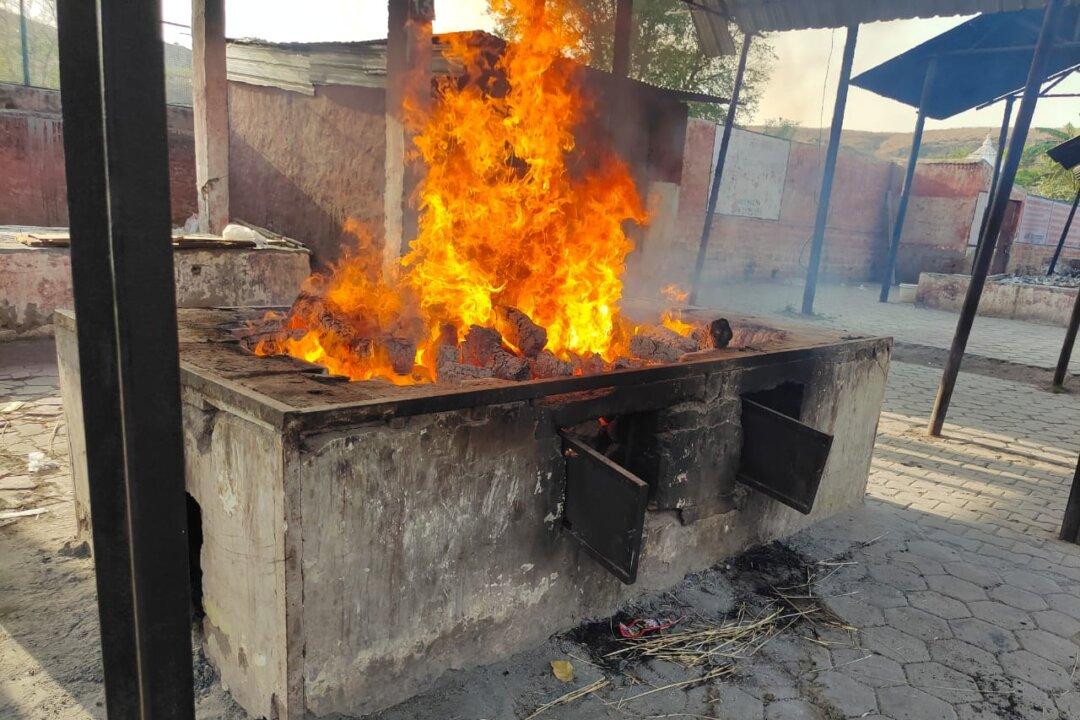NEW DELHI—Amidst the deadly COVID-19 surge in India, a startup is using fuel-efficient cow dung logs as an alternative to wood to cremate poor and unidentified bodies.
In India, 8.2 million wood-based cremations are done every year, for which 16.4 million trees are cut, according to Project Arth, a social initiative that wants to reduce deforestation and use sustainable cow dung-based logs.





